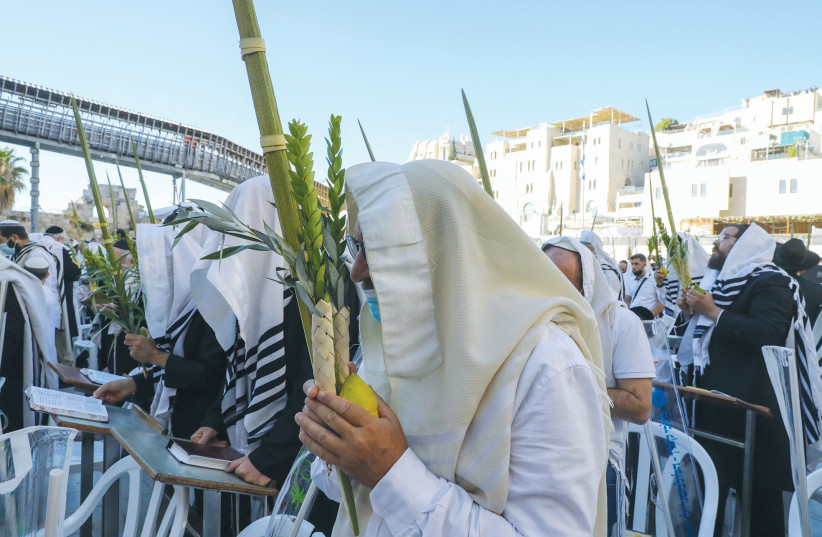Do you remember singing along with Pete Seeger, “The Byrds” or other pop groups lyrics that proclaimed:
“There is a time for every purpose under heaven … A time to be born and a time to die; A time to plant and a time to pluck up that which is planted; A time to love and a time to hate; A time of war and a time of peace… A time to embrace, and a time to refrain from embracing…”?
Many people who sing these words, or quote proverbs like “There is nothing new under the sun” are unaware that they are taken from the Book of Ecclesiastes, which is called “Kohelet” in Hebrew. The name comes from the Greek word for “Convoker,” which we translate as “The Preacher,” and it is read in every synagogue during Sukkot, the Feast of Tabernacles.
During Sukkot, we are commanded to “dwell in booths seven days; all that are Israelites born shall dwell in booths; that your generations may know that I made the children of Israel to dwell in booths when I brought them out of the Land of Egypt.” (Leviticus 23:39-44).
There is a lot of symbolism connected with Sukkot. The temporary booths we build bring us face to face with the realization that human life is frail and transitory. We are even forbidden to make our sukkah taller or lower than 20 cubits (30 feet), similarly to convey the lesson that we should be neither too proud and overbearing, nor too humble and lowly.
Why do we read the words of The Preacher at this time? The author describes himself as:
“The son of David, king in Jerusalem” so Kohelet is attributed to King Solomon who was noted for his wisdom.
Wisdom is used in the Bible as one of the three departments of knowledge, the others being Torah and prophecy. The wise men (who gave us Proverbs, Job and Ecclesiastes) sought by observation and reflection to know things as they stand related to God and man.
The practical aspect of wisdom is exemplified in the teachings of Ecclesiastes, where the ideal of life is a composite of patience, endurance, discretion, work, help to the distressed and consideration for one’s fellow man.
The words are beautiful and poetic, amongst the most beautiful in the Bible, although some find a sense of futility and pessimism in part of them. Kohelet finds life unsatisfying… wealth and its pursuit does not bring happiness and it is often lost before it can be enjoyed.
“I, the Preacher, was king over Israel in Jerusalem. And I gave my heart to seek and search out by wisdom concerning all things that are done under heaven; this sore travail hath God given to the sons of man to be exercised therewith. I have seen all the works that are done under the sun; and behold, all is vanity and vexation of spirit… I communed with my own heart saying: Lo, I am come to great estate, and I have gotten more wisdom than all that are before me in Jerusalem… And I gave my heart to know wisdom… for in such wisdom is much grief, and he that increaseth knowledge increaseth sorrow.”
Many believe that the Bible holds nothing grander than Ecclesiastes because of its impassioned portrayal of human pain and pleasure, failure and success, and are determined in advance by God, just as it is with natural phenomena: “To everything there is a season, and a time for every purpose under heaven.” The Book of Ecclesiastes ends with the advice: “Revere God and keep His commandments, for this is the whole duty of man.”
There is another important religious duty at Sukkot, and in fact we are commanded concerning it three times:
“You shall rejoice before the Lord your God seven days…”
“You shall rejoice in your festival…”
“You shall have nothing but joy…”
Despite the pessimistic note introduced by reading Kohelet, the dominant element of Sukkot is rejoicing and its moral lesson is that man should remember his bad times in his days of prosperity, so that he will live modestly and honorably.
The festival ends with Simchat Torah, when Jews are enjoined to “thrill with joy over the Torah.”
The writer is the author of 14 books, the latest of which is ‘Searching for Sarah.’ dwaysman@gmail.com

